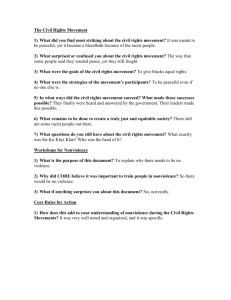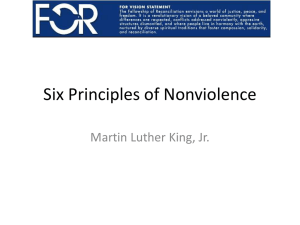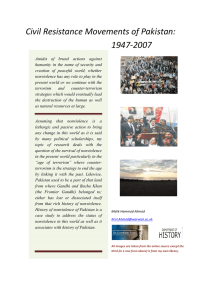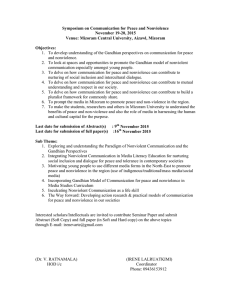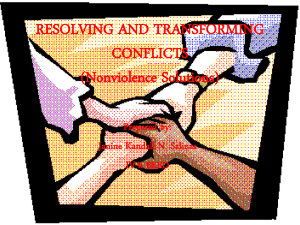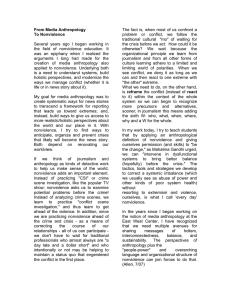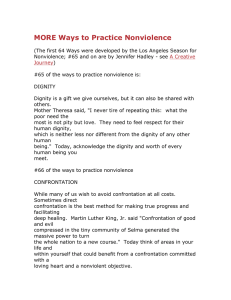Principles of Nonviolence Mahatma Gandhi & Martin Luther King, Jr.
advertisement
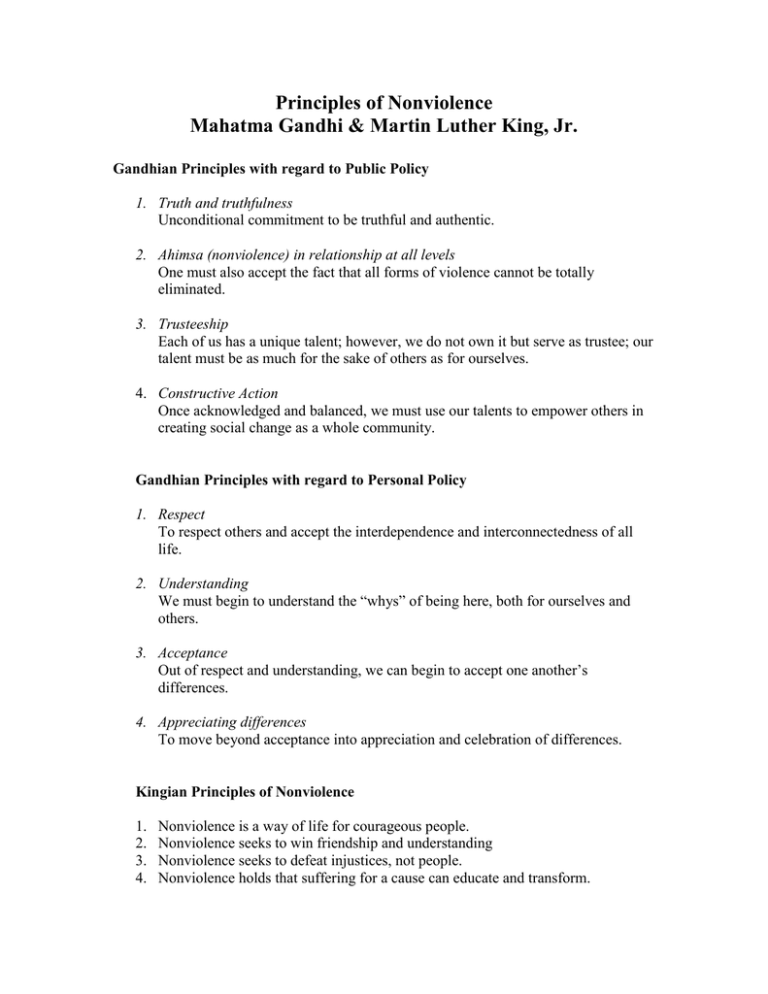
Principles of Nonviolence Mahatma Gandhi & Martin Luther King, Jr. Gandhian Principles with regard to Public Policy 1. Truth and truthfulness Unconditional commitment to be truthful and authentic. 2. Ahimsa (nonviolence) in relationship at all levels One must also accept the fact that all forms of violence cannot be totally eliminated. 3. Trusteeship Each of us has a unique talent; however, we do not own it but serve as trustee; our talent must be as much for the sake of others as for ourselves. 4. Constructive Action Once acknowledged and balanced, we must use our talents to empower others in creating social change as a whole community. Gandhian Principles with regard to Personal Policy 1. Respect To respect others and accept the interdependence and interconnectedness of all life. 2. Understanding We must begin to understand the “whys” of being here, both for ourselves and others. 3. Acceptance Out of respect and understanding, we can begin to accept one another’s differences. 4. Appreciating differences To move beyond acceptance into appreciation and celebration of differences. Kingian Principles of Nonviolence 1. 2. 3. 4. Nonviolence is a way of life for courageous people. Nonviolence seeks to win friendship and understanding Nonviolence seeks to defeat injustices, not people. Nonviolence holds that suffering for a cause can educate and transform. 5. Nonviolence chooses love instead of hate. 6. Nonviolence holds that the universe is on the side of justice and that right will prevail. King’s Six-Step Process toward Social Change 1. 2. 3. 4. 5. 6. Information gathering Education Personal commitments Negotiation Direct Action Reconciliation and beginning the healing process. Principles of Nonviolence (for kids) ...but really for adults Believing that everyone counts. Practicing kindness. Loving and forgiving others and ourselves. Taking care of the earth and everything on it. Having the courage to do the right thing. Helping people in our special way. Making the world a fun place to live. --unattributed
